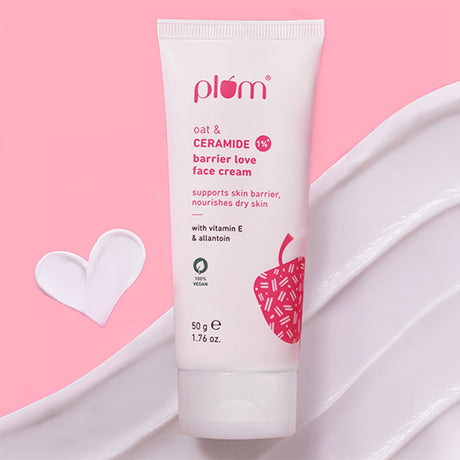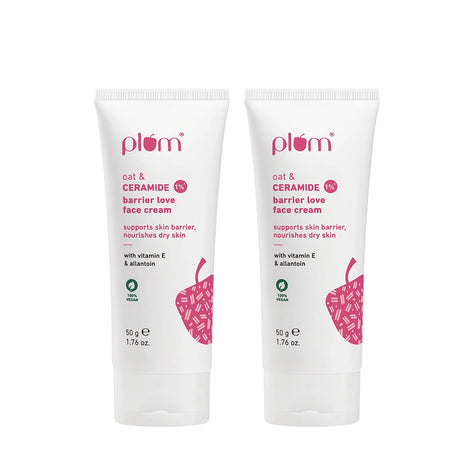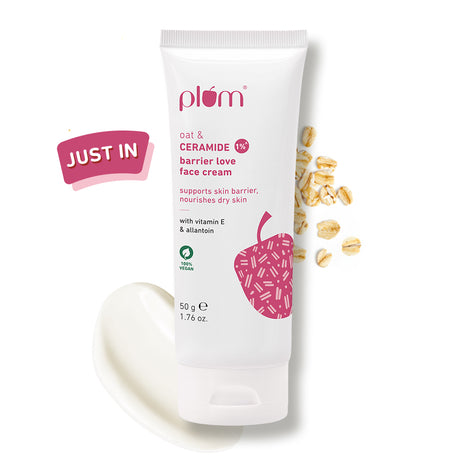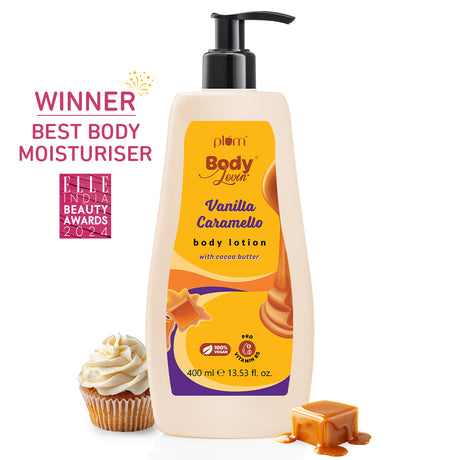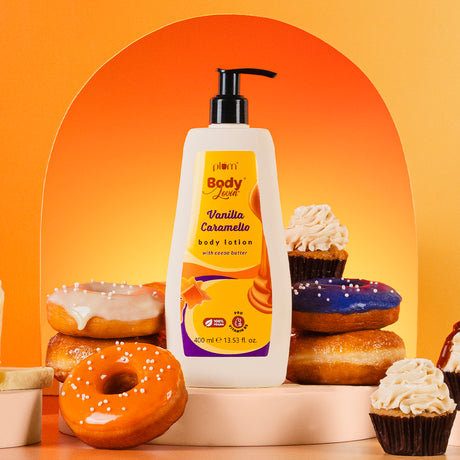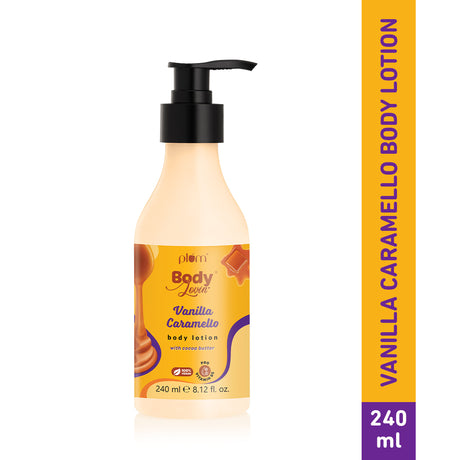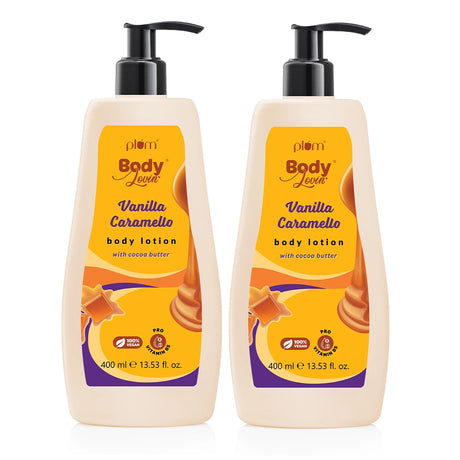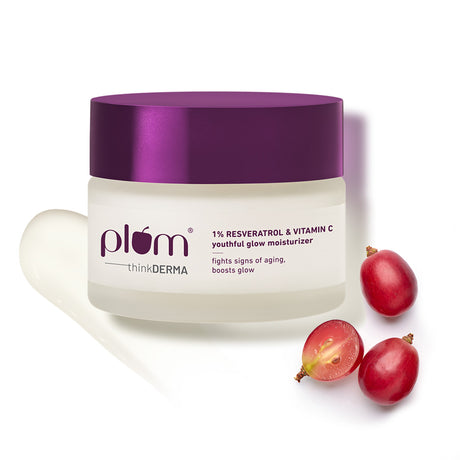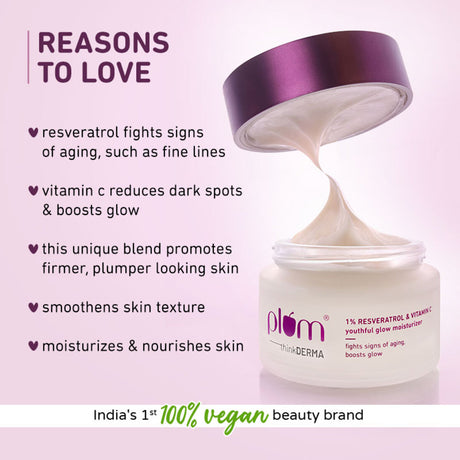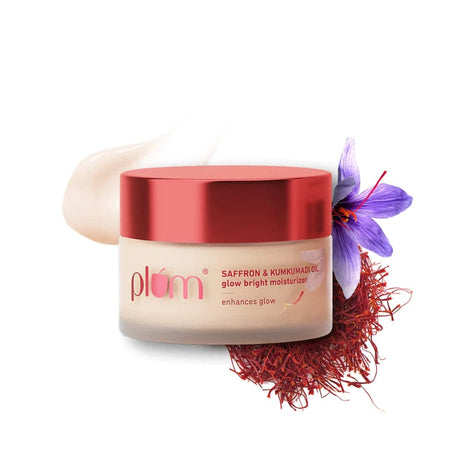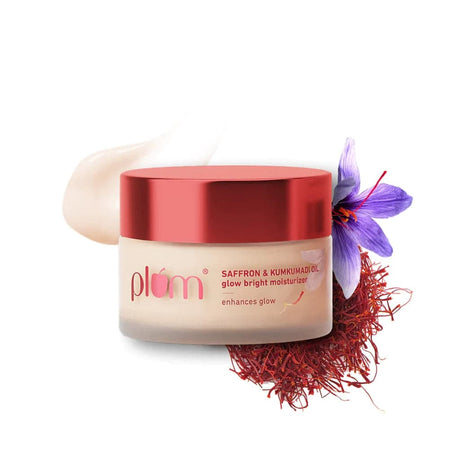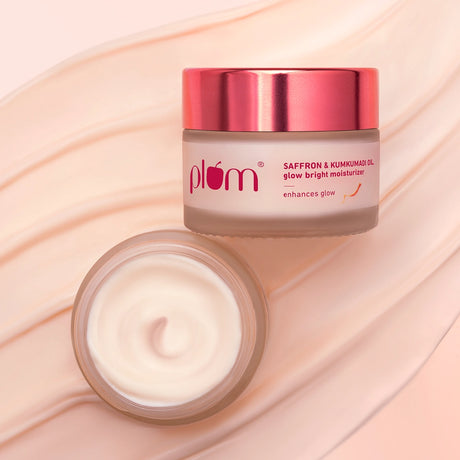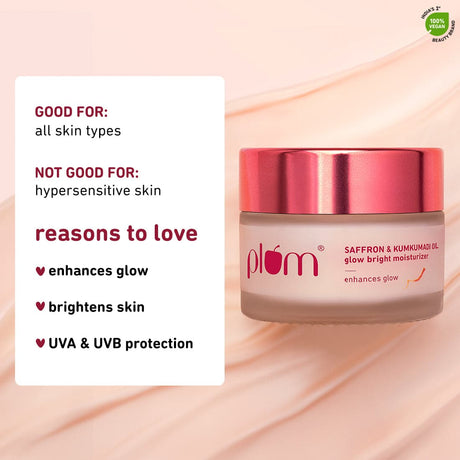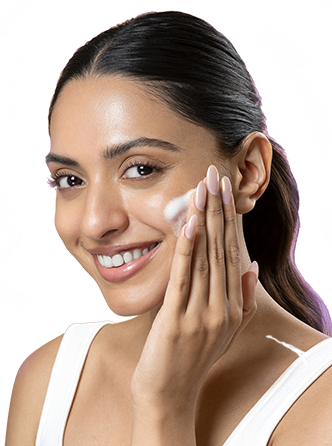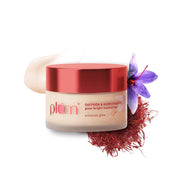
IN THIS ARTICLE
Your body needs at least 8 glasses of water daily to function properly. Similarly, your skin, the largest organ, requires adequate hydration too.
While drinking water is crucial to replenishing the water content in your skin, using moisturizers regularly is essential to maintaining its health and nourishment.
Adequate moisturization is a crucial step for your skin, irrespective of skin type.
Moisturizers help maintain the skin's hydration balance while making your skin soft, supple, and youthful.
Apart from hydration, there are many other benefits of moisturizers that not many know of. Here’s a comprehensive guide on moisturizers. Know the importance of moisturizing, its different types, and its benefits.
Additionally, find answers to commonly asked questions like what is a moisturizer, how to use moisturizer, when to use moisturizer, how to choose a moisturizer, etc.
What is a moisturizer?
Moisturizers are a must-have in any skincare routine, helping to keep your skin soft, hydrated, and protected.
Whether it’s a cream, gel, or lotion, these products work by combining ingredients like humectants and emollients to lock in moisture and nourish your skin.

They don’t just hydrate; moisturizers create a barrier that shields your skin from harsh environmental factors like pollution and dryness. By keeping the outer layer of your skin healthy and hydrated, they help your skin stay smooth, resilient, and ready to take on the day.
Types of moisturizers
Unlike a few decades ago, when creams were the only type of moisturizer we knew, today, there are multiple varieties of moisturizers available. Take a look:
-
Face creams: Silky and smooth to the touch, creamy moisturizers deeply nourish the skin and are ideal for dry and mature skin types. They have a thicker consistency, making them more suitable for use in dry climates or during winter when the skin needs extra moisture.
-
Gels-based moisturizers / Water-based moisturizers: Gel or water-based moisturizers have a lightweight, transparent, or translucent texture that absorbs quickly into the skin. They are usually non-greasy and provide intense hydration without clogging pores, causing irritation, or leaving a greasy residue. These types of moisturizers are suitable for all skin types but work best for oily, acne-prone, and sensitive skin.
-
Lotions: Lotions are lighter than creams and are suitable for normal to combination skin types. They offer a balance of hydration and are perfect for everyday use.
- Ointment-Based Moisturizers: Moisturizing ointments are the thickest and most occlusive type of moisturizers. They lock in moisture and keep the skin nourished throughout the day. These are ideal for extremely dry or eczema-prone skin and are particularly effective in extremely dry or cold temperatures.
Why is moisturizer important?
There are many more moisturizer benefits for healthy skin rather than just hydrating your skin. Here are some key benefits of using moisturizer regularly:
Hydrating & nourishing your skin:
The absence of hydration can make your skin dry, dull, rough, and itchy. A moisturizer helps deeply hydrate, nourish your skin, and replenish the lost moisture. Daily application of them maintains the moisture balance in your skin, keeping it hydrated & nourished which is crucial for your skin’s health and glow. It also helps maintain the skin's elasticity and suppleness, reducing the likelihood of dryness and flakiness.
Barrier protection:
A moisturizer locks in moisture in your skin, preventing trans-epidermal water loss. It further provides a soothing protective film and strengthens the skin's natural barrier preventing issues like hyperpigmentation, acne, redness, and sensitivity.
Slows the signs of aging:
Dehydrated skin can weaken its skin barrier and defense, causing irritation and premature aging. One of the prime benefits of moisturizer on the face is slowing down signs of aging and reducing the appearance of fine lines and wrinkles. A well-moisturized skin is plumper and more youthful, making moisturizers a must-have in your routine.
Achieves a smooth texture:
Moisturizers cover small skin fissures and help smooth out the skin's texture. It also protects the skin from friction, making it beneficial for rough or uneven skin.
Calms irritation & soothes sensitive skin:
Moisturizers with soothing ingredients like aloe vera, chamomile, oat extract, and allantoin can help calm irritated or sensitive skin. It also calms dry and irritated skin and helps maintain its health.
Helps fight acne:
Contrary to popular belief, oily skin needs moisturizing too! Without proper hydration, your skin may overproduce sebum, leading to clogged pores and breakouts.
To learn more, check out this blog: Do You Need a Moisturizer If You Have Oily Skin?
For oily skin, choose a lightweight moisturizer that balances your skin’s moisture levels, helping to prevent excess shine and acne while keeping your skin healthy and hydrated.
How to choose a moisturizer?
For the best results, you must choose a skincare product that addresses your specific skin concerns and is suitable for your skin type. Here are some factors that you need to consider to find an answer to “how to choose a moisturizer for your skin”:
-
Skin Type: Not all moisturizers will suit your skin. Therefore, consider your skin type when choosing one. Opt for rich creams or ointments to lock in moisture for dry skin. For oily and acne-prone skin, gel and water-based moisturizers are more suitable to avoid clogged pores and greasiness. Read this blog to know more: How to Determine Your Skin Type.
-
Concerns: Once you know your skin type, look for specific skin concerns you need to address, such as anti-aging, brightening, dullness, or acne control. Based on these concerns, you can select ingredients and choose a moisturizer formulated to address those issues.
-
Key Ingredients: To give your skin the best care and nourishment, look for beneficial ingredients in your moisturizer. It should be rich in occlusives, humectants, emollients, occlusive, and fatty acids that adequately nourish and hydrate your skin. For dry skin, look for ingredients like hyaluronic acid, vitamin E, aloe vera, and squalane. For anti-aging needs, consider antioxidants, retinol, and resveratrol. For barrier repair and sensitive skin, ceramides and allantoin are ideal. Niacinamide is great for brightening and oily skin.

- Climate: You must also consider your climate and temperature when selecting the right moisturizer. Opt for heavier creams and lotions for cold, dry climates when your skin needs extra care and nourishment. On the other hand, lightweight gels and water-based moisturizers work best for summer and humid environments.
How to use moisturizer?
Listed below are some tips on how to apply moisturizer:
- Cleanse first: Wash your face and pat dry.
- Squeeze a small amount: Use just enough to cover your face.
- Gently massage: Apply in circular motions.
- Use upward strokes: Move upwards to avoid sagging skin.
- Don’t forget your neck: Moisturize your neck too.
- Apply before makeup: Give it time to absorb before applying foundation.
When to use moisturizer?

You can apply moisturizer whenever your skin feels dry. However, knowing when to apply moisturizer and the best time for moisturizer application can maximize its benefits.
After cleansing: The best time to apply moisturizer is after cleansing, exfoliating, or showering. In short, whenever you wash your face and skin, it's crucial to replenish the moisture lost by hydrating it with an adequate moisturizer.
At night: Nighttime is when your skin repairs and regenerates. Applying a rich, nourishing moisturizer before bed can help support this natural process, ensuring you wake up with hydrated, soft, and supple skin.
At the end of your skincare routine: After cleansing and toning, apply a moisturizer to lock in moisture, followed by a broad-spectrum sunscreen during the day. If you’ve been wondering what to apply first moisturizer or sunscreen—here is the answer: sunscreen always comes last in your daytime skincare routine.
There are many benefits to moisturizers, making them a must-have step in your routine. Whether you have oily or dry skin, a moisturizer nourishes your skin, leaving it healthy and radiant.
However, it is crucial to choose the right moisturizer and apply it correctly for maximum benefits.
Also, read:
How To Use Resveratrol Moisturizer | How To Use Salicylic Acid Moisturizer | How To Use Mattifying Moisturizer | How To Use Green Tea Moisturizer | How To Use Retinol Night Cream | How To Use Vitamin E Face Cream With 1% Oat & Allantoin | How To Use Green Tea Night Gel | How To Use Niacinamide Cream
FAQs
Q1. Why is it important to use moisturizer?
The benefits of moisturizer include hydrating and nourishing the skin, protecting the skin barrier, slowing signs of aging, improving texture, calming irritation, and helping to prevent acne.
Q2. When to use moisturizer?
You should use moisturizer after cleansing, exfoliating, or showering, at night before bed, and at the end of your skincare routine to lock in moisture.
Q3. How to use moisturizer?
To use moisturizer, cleanse your face, apply a small amount, massage in circular motions, use upward strokes, don’t forget your neck, and allow it to absorb before applying makeup.
Q4. How to choose a moisturizer?
To choose a moisturizer, consider your skin type, specific concerns, key ingredients, and the climate you live in to find the best match for your needs.
Q5. What is a moisturizer?
A moisturizer is a skincare product that keeps your skin soft, hydrated, and protected by locking in moisture and creating a barrier against environmental factors.
Q6. Is moisturizer good for the face every day?
Yes, using moisturizer daily is beneficial for maintaining skin hydration, protecting the skin barrier, and keeping your complexion smooth and healthy.
Q7. How much moisturizer should I put on my face?
A pea-sized amount is generally enough for the face. You can adjust the amount based on your skin type and climate. However, avoid over-applying to prevent greasiness and clogged pores.
Q8. Do moisturizers darken skin?
No, moisturizers do not darken the skin. They help maintain an even skin tone by preventing dryness and irritation. Moisturizers with ingredients like niacinamide and vitamin C can further help brighten skin.
Q9. How long does it take for moisturizer to fully absorb into skin?
Moisturizers typically take a few minutes to absorb into the skin. Allow it to fully absorb before applying other skincare products or makeup for optimal results.







